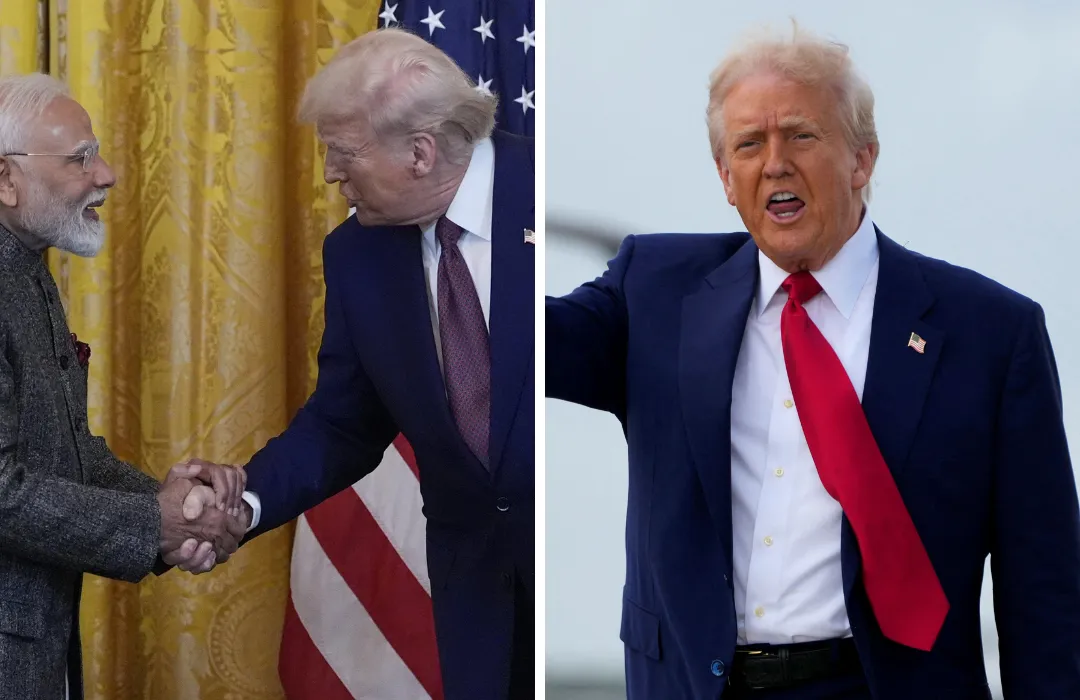In a development that feels more like a subplot from a political satire than a real event, Director of National Intelligence Tulsi Gabbard has taken to social media to publicly accuse a Washington Post reporter of “actively harassing” her staff — not for breaking into ODNI headquarters, not for leaking documents, but for doing what journalists have done for centuries: making phone calls and asking questions.
Yes, that’s right. The woman charged with overseeing the nation's vast intelligence apparatus, responsible for navigating threats from cyberattacks to nuclear espionage, has now turned her gaze inward — toward a veteran journalist with a notepad and a burner phone.
Apparently, America’s enemies include not just foreign hackers or hostile regimes, but Ellen Nakashima from the Washington Post and her terrifying habit of... reporting.
Gabbard's X post, delivered with the breathless indignation of someone who just discovered investigative journalism exists, claimed Nakashima was “actively harassing” her staff by calling intelligence officers directly, failing to identify herself, and — horror of horrors — “demanding they share sensitive information.”
Tulsi, meet the First Amendment. It’s been around for a while. You may have heard of it. It’s the part of the Constitution that makes it legal — and even admirable — for journalists to question those in power, even if those in power would rather sip tea in silence and never take uncomfortable calls.
Instead of contacting her press office, Gabbard fumes, the reporter called ODNI staff directly, sometimes even using a burner phone. Let’s pause there. A burner phone? Really?
Is Ellen Nakashima suddenly a character in a Jason Bourne film? Or is she just a veteran journalist trying not to get instantly routed to voicemail by a government that stonewalls even the most basic media inquiries?
If avoiding automated press statements and digging for firsthand insight is now labeled “harassment,” then the entire journalism industry might as well turn itself in.

This wasn’t just a case of professional complaint. Gabbard went full scorched earth, calling Nakashima’s behavior “deranged” and part of a broader media conspiracy to sabotage President Trump’s "successful agenda."
Yes, because clearly, what keeps the nation up at night is not inflation, border security, or global instability — but an award-winning reporter asking too many questions.
Tulsi didn’t stop there, either. She claimed Nakashima had once “stalked” her family in Hawaii. That’s right. Somehow, between writing about Chinese cyber threats and NSA surveillance programs, Ellen Nakashima supposedly found time to LARP as a paparazzi. Sure.
For someone who once branded herself as a truth-teller and outsider unafraid of tough conversations, Gabbard has quickly morphed into exactly what she used to rail against: a power-drunk bureaucrat allergic to scrutiny.
The irony is richer than a Georgetown fundraiser. Tulsi Gabbard, the former congresswoman who built her brand on calling out the establishment and championing free speech, is now weaponizing her official position to attack a journalist — not for being wrong, but for being persistent.
The Washington Post, to its credit, responded with measured clarity. Executive Editor Matt Murray stood by Nakashima, describing her as “one of the most careful, fair-minded, and highly regarded reporters covering national security.”
He reminded Gabbard — and anyone else feigning ignorance — that “reaching out to potential sources rather than relying solely on official government press statements… is basic journalism.” Murray didn’t need 280 characters to make his point. He needed one sentence: this is called doing the job.
And it’s not just Nakashima. According to Gabbard’s own team, this is part of a pattern. In November, Gabbard’s former chief of staff accused another Washington Post reporter of “stalking” staff and even showing up at someone’s home — a practice that, by the way, happens daily in newsrooms across America, particularly when public figures avoid comment. It’s called shoe-leather reporting. It’s how Pulitzer Prizes are won, not how conspiracies are launched.

The deeper absurdity in all of this is that Gabbard’s outrage hinges on the idea that reporters should only contact her through “proper channels.” But what are those proper channels if not political gatekeeping?
In many federal agencies, “official press offices” exist to deflect, sanitize, and delay. They exist to ensure that inconvenient questions never reach the people who actually know the answers. For any serious journalist, bypassing those bottlenecks isn’t sabotage — it’s survival.
Let’s be clear: no one is suggesting that reporters have the right to harass, intimidate, or endanger anyone. But calling someone’s office, even from an unlisted number, and asking questions is not harassment.
It’s called doing your homework. That’s especially true when the person being called is a public official working in an agency funded by taxpayers and tasked with national intelligence. When you’re in charge of something that powerful, you don’t get to cry “harassment” every time someone picks up the phone.
Gabbard’s approach reveals a deeper insecurity. If her team is operating with integrity and professionalism, why the panic over a reporter calling for comment?
Why the melodramatic accusations of harassment and stalking? Why the sudden lurch into conspiracy theory territory where journalists are now “part of a political op”? Could it be that the ODNI has something to hide? Or is this simply about controlling the narrative?
Let’s not forget, Tulsi Gabbard didn’t fall into this role by accident. She sought the spotlight. She ran for president. She toured media outlets. She flirted with multiple political identities before settling comfortably into the populist wing of Trumpism.
And now, when faced with the very accountability she once claimed to champion, she’s lashing out like a celebrity caught off-guard by a tabloid camera.

Here’s a wild idea: if you don’t want reporters calling your staff, maybe don’t work in the most sensitive, high-stakes job in U.S. intelligence. Maybe take up watercolor painting or become a private citizen again. Because as long as you’re the Director of National Intelligence, you are fair game for scrutiny. That’s not harassment. That’s democracy.
In the end, this episode doesn’t reveal anything new about journalism. It reveals everything about Tulsi Gabbard. The woman who once talked tough is now retreating behind the velvet rope of government insulation, mistaking curiosity for conspiracy and public accountability for personal attack.
Maybe next time she logs on to X to complain about reporters doing their job, she should pause and remember what her own job entails: serving the public, not shielding herself from it. Until then, Tulsi Gabbard’s crusade against journalism will remain what it is — a tantrum dressed as a press release.



-1749798917-q80.webp)
